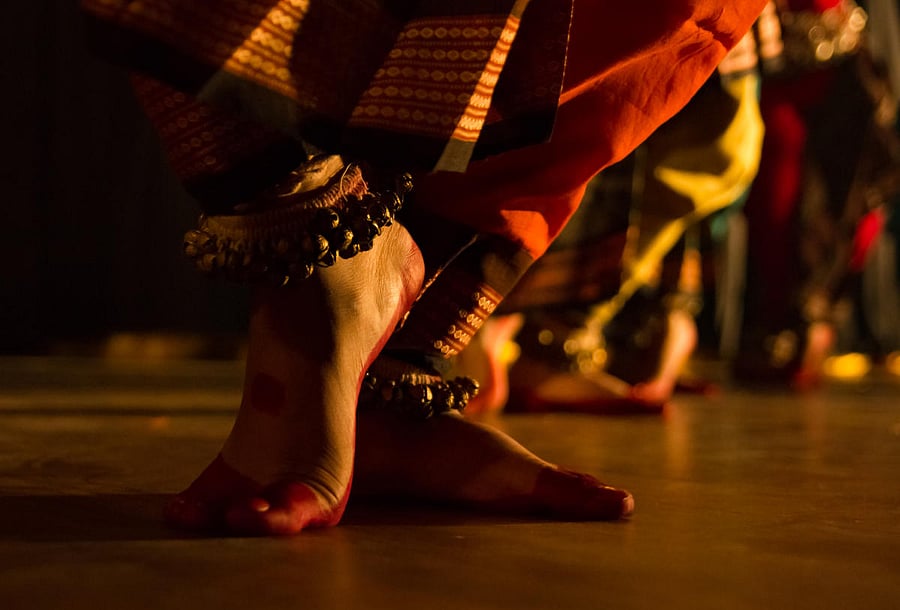
Leela Samson, the eminent Bharatanatyam exponent, shared some thoughts about arangetram, the traditional debut for Bharatanatyam dancers, at a panel discussion. I stumbled on a video recording of her remarks.
“Arangetram you can do without much fuss. You can have it anywhere, at home, in the temple, anywhere. The guru should still be with you. We dancers are becoming exclusive and not inclusive. You have to include those who are not privileged. It shames me to think about the kind of money being spent for arangetrams… this is criminal in our time,” she said.
The title of the discussion was ‘Arangetram: Boon or Bane.’ She questioned the need for extravagance and even the need for an arangetram when she said, “The pilot who flies your aircraft doesn’t have an arangetram and doesn’t pay anybody. The surgeon who does your surgery doesn’t need an arangetram.’
As the mother of a child whose passion is Bharatanatyam, I was getting introduced to such conventions, but as a common person far removed from any form of classical dance, my brain was questioning the need for it, especially the long list of to-dos.
We were told by our daughter’s guru that she was ready for her arangetram in 2019. We were preparing for it in 2020 when the pandemic broke out, and a dance debut was the last thing on anyone’s mind. In August 2022, she finally debuted, with a different teacher from whom she had learnt for just about a year, and effectively for seven weeks, before her arangetram.
All my nightmares came true! Why was it so difficult for parents? It is worse for the children, because they are young, innocent, and impressionable. Our experience ended with the teacher confiscating the video and demanding more money. She threatened to destroy it if we didn’t pay up. I know this was an aberration. So I will not delve into that. But in general, most parents describe the arangetram as a very stressful affair.
Why? To begin with, it costs a fortune. The manager of an auditorium quoted double the regular rent. We are into theatre, and we regularly book the auditoriums across Bengaluru. When we asked why he was quoting so high, he said arangetrams were ‘money spinners’. He also cautioned us that all professionals would charge us a premium — for the light, sound, stage design, music, make-up, photography, videography and so on.
And it was true! And to top it all, some gurus (not all) charge a hefty amount for doing the arangetram. And when they demand money, doesn’t it take away from the sanctity of our great Indian ‘guru-shishya parampara?’ Many of us, ignorant about the world of Bharatnatyam, agree to such demands, without knowing that many renowned gurus do not charge a fee for arangetrams. They most definitely get a ‘guru dakshina,’ given by the student (and parents) out of love, respect and gratitude. And that is perfectly fine. But there is a huge number of teachers who view arangetrams as money spinners.
Why is this so? I have been asking around a lot, and I have come across quite a few articles which criticise parents for being extravagant. Some parents might want to splurge, but I know many who want to keep it simple. In many cases, parents are compelled to pay beyond their means, because otherwise their children don’t get to experience something their peers in dance class experience.
Parents who can’t afford arangetrams pull their children out of dance, even when the children are supremely talented. We wanted an arangetram only because we wanted to give our child the experience of a solo performance. But in spite of our best efforts to keep the expenses down, we were forced to pay a premium for many services. Once you sign up for arangetram, you are pushed into a narrow one-way tunnel. At least that’s what happened in our case. Not going with the flow would mean calling it off. The teacher typically takes an arangetram fee up-front, as in our case. So, once you say yes, you have already invested big. When I said that we would like to keep the expenses within our means, we were told that we should not think about money when it comes to an arangetram — our child would be deprived of all the blessings if we didn’t pay up. My logical corporate mind said love and blessings couldn’t be bought.
Parents have a role to play in stopping this bullying. But the community of Bharatnatyam dancers should also think about it. A few teachers can ruin the grace and honour of our classical dance. Shouldn’t we all try to stop it? The dance community condemning it will have a much higher impact than a parent condemning it.
(The author is managing director of a banking sector MNC, and a theatre actor.)